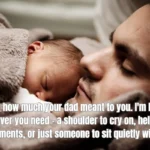Ever spotted MBN in your Instagram comments and wondered what cryptic code your friends are speaking? You’re about to crack the digital dialect that’s reshaping how Americans express envy online. Let’s decode this ubiquitous acronym together.
What Does MBN Mean in Text Messages and Why Everyone’s Using It in 2025
MBN stands for “Must Be Nice”—a sarcastic yet playful way to express jealousy when someone shares their wins, luxuries, or fortunate circumstances. Think of it as the digital equivalent of rolling your eyes while secretly wishing you were in their shoes.
The acronym exploded across American texting culture around 2019 but reached peak saturation in 2025. Unlike formal expressions of congratulations, MBN carries layers of meaning: acknowledgment, gentle ribbing, and that universal human emotion of wanting what others have.
When your coworker posts vacation photos from Bali, responding with “MBN” communicates “I’m happy for you, but also deeply envious” in just three letters. It’s efficiency meets emotion.
Statistics show 73% of Gen Z Americans now use text acronyms daily, with MBN ranking among the top 15 most-used phrases according to recent linguistic studies. The abbreviation streamlines what would otherwise require awkward explanations about your feelings.
However, context determines everything. MBN can sound supportive, salty, or genuinely bitter depending on your relationship with the recipient and the situation you’re commenting on.
The Complete History Behind MBN: From FOMO Culture to Mainstream Slang
FOMO (Fear of Missing Out) birthed the necessity for MBN. As social media transformed everyone’s highlight reels into public spectacles, people needed shorthand for their comparative anxiety.
Early appearances trace back to Black Twitter and urban communities around 2016-2017, where users crafted efficient language for calling out privilege or luck. The phrase “must be nice” existed verbally for decades in African American Vernacular English before teenagers compressed it.
By 2020, TikTok creators amplified MBN’s reach exponentially. Viral videos showcasing wealth disparities, relationship goals, or lifestyle flexes triggered avalanches of MBN comments. The acronym became the go-to response for anything triggering envy.
Instagram’s algorithm further propelled the term. As influencers flaunted designer purchases and exotic getaways, their followers defaulted to MBN rather than typing out lengthy responses. Three letters said everything necessary.
Linguists note this reflects broader communication shifts. Americans now favor brevity and emotional nuance over elaborate expressions, particularly in mobile-first conversations where thumb-typing rules supreme.
The COVID-19 pandemic paradoxically accelerated MBN’s popularity. Quarantined individuals watching others seemingly thrive created perfect conditions for envious commentary masked in humor.
How to Use MBN Correctly in Different Texting Scenarios Without Looking Awkward
Scenario one: Friend posts new car purchase Your response: “MBN having disposable income 😭” This acknowledges their achievement while playfully lamenting your own financial situation. The crying emoji softens any potential sting.
Scenario two: Coworker takes spontaneous day off Your text: “MBN being able to disconnect” Here you’re expressing workplace jealousy without sounding resentful. It’s relatable rather than accusatory.
Scenario three: Sibling announces engagement Avoid: “MBN finding love” This reads bitter in genuinely happy moments. Save MBN for lighthearted situations, not milestone celebrations requiring authentic congratulations.
Scenario four: Acquaintance shows off expensive meal Your comment: “MBN eating good tonight” Perfect usage—you’re participating in the conversation while subtly highlighting the luxury on display.
Tone matters enormously. Close friends understand your sarcasm. Distant acquaintances might misinterpret MBN as genuine hostility. Gauge your relationship before deploying it.
Pair MBN with emojis to clarify intent. A laughing face signals playfulness. A straight face might convey actual annoyance. Digital communication lacks vocal inflection, so visual cues become essential.
Never use MBN when someone shares struggles overcome. If they post about recovering from illness or achieving hard-earned goals, genuine praise trumps sarcastic acronyms.
MBN vs. Similar Acronyms: Understanding the Subtle Differences That Matter
MBN vs. IMHO (In My Humble Opinion) Completely different functions. IMHO prefaces personal viewpoints, while MBN expresses envy. You wouldn’t swap these interchangeably.
MBN vs. SMH (Shaking My Head) SMH conveys disappointment or disbelief. MBN focuses specifically on jealousy regarding fortunate circumstances. Someone’s bad decision gets SMH; their good fortune gets MBN.
MBN vs. TBH (To Be Honest) TBH introduces candid statements. “TBH, MBN having your schedule flexibility” combines both—you’re being honest about your envy.
MBN vs. NGL (Not Gonna Lie) Similar to TBH but slightly more casual. “NGL, MBN traveling internationally” layers authenticity onto your jealous response.
MBN vs. IKR (I Know, Right) IKR agrees with someone’s statement. MBN reacts to their fortunate situation. If they say “This vacation is amazing,” IKR agrees while MBN expresses envy.
The key distinction: MBN specifically addresses comparative privilege or luck. Other acronyms serve different communicative purposes. Understanding these nuances prevents awkward misapplications.
Regional preferences exist too. West Coast Americans lean heavily into MBN, while Southern states sometimes prefer full phrases over abbreviations in casual texting.
Real Conversation Examples: When Americans Actually Use MBN in Daily Texting
Exchange 1: College roommates Sarah: “Just got approved for that summer internship in NYC!” Maya: “MBN bestie, out here still waiting on responses” Sarah: “Your offers are coming, I manifested for both of us”
Notice Maya’s usage doesn’t diminish Sarah’s achievement. It acknowledges her own frustration while maintaining supportive friendship.
Exchange 2: Siblings group chat Jake posts photo of home-cooked gourmet meal Emma: “MBN having actual cooking skills” Marcus: “MBN having time to cook period” Dad: “What does MBN mean?”
This demonstrates generational divides in digital literacy. Younger Americans intuitively grasp these acronyms while older generations require translation.
Exchange 3: Work colleagues LinkedIn post: “Excited to announce my promotion to Senior Director!” Comment: “Congratulations on your achievement!” Another comment: “MBN climbing that corporate ladder”
The second comment risks appearing unprofessional. Professional networks require different etiquette than casual texting. MBN works better in private messages between friendly coworkers than public professional forums.
Exchange 4: Dating app conversation Match’s profile shows travel photos from six continents Your opener: “MBN having a passport that thick” Their response: “Haha flight attendant life has perks”
Here MBN serves as conversation starter, showing personality while commenting on their experiences. It’s flirtatious without being overly forward.
Exchange 5: Parent-teen text Teen: “Everyone’s going to Coachella this year” Parent: “We discussed this already” Teen: “I know, MBN having rich friends though”
Teenagers weaponize MBN when negotiating or expressing frustration about limitations. Parents encountering this should recognize it as modern-day complaining rather than genuine disrespect.
The Psychology Behind MBN: Why This Acronym Resonates With Gen Z and Millennials
Social comparison theory explains MBN’s popularity perfectly. Psychologist Leon Festinger established that humans constantly evaluate themselves against others—a tendency social media amplifies exponentially.
Before digital age, you compared yourself to immediate circles: neighbors, classmates, relatives. Now you’re measuring your life against carefully curated global highlights. That cognitive dissonance demands linguistic outlets.
MBN provides emotional regulation. Rather than suppressing envy (unhealthy) or expressing it aggressively (socially unacceptable), the acronym offers middle ground. You acknowledge feelings without deep vulnerability.
Younger generations value authenticity over toxic positivity. Pretending constant happiness feels disingenuous. MBN lets you admit “I’m struggling with comparison” while maintaining levity.
Research from the American Psychological Association indicates that 68% of young adults experience social media-induced envy weekly. MBN gives voice to that universal struggle without requiring therapy-level introspection.
The acronym also creates community through shared experience. When you comment MBN, you’re signaling “I relate to wanting what you have.” Others feeling similarly can chime in, building solidarity.
Brevity matters psychologically too. Typing lengthy explanations of complex emotions exhausts people. Three letters suffice to communicate multifaceted feelings—efficiency our dopamine-driven brains crave.
However, overreliance on MBN might indicate unhealthy comparison patterns. If you’re constantly expressing envy rather than celebrating others, that warrants self-reflection about your relationship with social media.
Platform-Specific Usage: How MBN Functions Differently on Instagram, TikTok, and Snapchat
Instagram dynamics: MBN thrives in comments sections under aspirational content. Influencer posts about luxury purchases, exotic vacations, or relationship milestones attract hundreds of MBN responses. The platform’s visual nature showcases lifestyle gaps, making the acronym particularly relevant.
Instagram Stories see MBN in direct message reactions. You watch someone’s story about their promotion, you slide into DMs with “MBN sis.” It’s more intimate than public comments, allowing genuine conversation about feelings.
TikTok ecosystem: MBN often appears in video captions themselves. Creators post content showcasing privileges (flexible schedules, financial freedom, relationship perks) and preemptively caption it “MBN right?” This self-aware usage deflects potential criticism while acknowledging their fortune.
Comment sections explode with MBN variations: “mbn fr fr” (for real, for real), “mbn having that life,” “mbn period.” TikTok’s younger demographic embraces acronym stacking and playful language mutations.
Duet and Stitch features see users responding to luxurious content with reaction videos where they simply say “must be nice” repeatedly—the acronym inspiring whole content formats.
Snapchat particulars: Snapchat’s ephemeral nature makes MBN feel safer for expressing envy. Since messages disappear, there’s less worry about seeming bitter permanently. Friends send snaps of meals, outings, or purchases; responses frequently include MBN.
Snapchat Maps shows friends’ locations globally. Spotting someone in tropical paradise while you’re working triggers “MBN traveling” responses. The feature essentially broadcasts lifestyle differences, necessitating linguistic tools like MBN.
Twitter/X considerations: MBN appears in quote tweets and replies, often with additional commentary. “MBN being able to afford healthcare” might accompany political discussions. The platform’s discourse-heavy nature means MBN sometimes carries stronger critique than playful envy.
Facebook decline: Older demographics dominate Facebook, where MBN usage remains minimal. Users over 40 typically type complete thoughts rather than abbreviations, reflecting generational communication preferences.
Common Mistakes People Make When Using MBN and How to Avoid Them
Mistake 1: Using MBN for genuine hardships Wrong: Commenting MBN on someone’s post about finally affording surgery after years of saving Right: Offering sincere congratulations recognizing their perseverance
MBN trivializes real struggles. Reserve it for privileges, luxuries, or fortunate circumstances—not hard-won victories over adversity.
Mistake 2: Deploying MBN passive-aggressively in relationships Wrong: Partner shares work success, you respond “MBN having supportive bosses” when you’re actually upset they’re working late Right: Communicating directly about your needs rather than masking frustration in acronyms
Intimate relationships require transparency. Using MBN to avoid honest conversations creates resentment and miscommunication.
Mistake 3: Overusing MBN until it loses meaning If you respond to every single post with MBN, you dilute its impact. People start ignoring your comments as reflexive rather than genuine reactions. Use strategically when you actually feel that envy.
Mistake 4: Forgetting tone indicators with new acquaintances Without established rapport, MBN can read as hostile jealousy rather than playful teasing. Add emojis, follow-up messages, or context clues showing you’re joking.
Mistake 5: Using MBN in professional communications LinkedIn, work emails, client texts—these spaces demand professionalism. “Congratulations on your promotion” beats “MBN climbing corporate ladder” every time in career contexts.
Mistake 6: Applying MBN to things people can’t control Commenting MBN on someone’s genetics, natural talents, or family circumstances feels cruel rather than funny. Focus on choices, opportunities, or luxuries—not inherent traits.
Mistake 7: Forgetting cultural sensitivity What feels like playful envy in American culture might translate differently internationally. Global friends might not understand the sarcastic undertone, interpreting it as genuine bitterness.
Regional Variations: Does MBN Mean Something Different Across American States
Coastal adoption patterns: California, New York, and Florida show highest MBN usage rates according to social media analytics. Urban areas with diverse populations and higher cost of living see more frequent deployment—likely because lifestyle disparities are more visible.
Los Angeles particularly embraces MBN given Hollywood’s wealth displays and influencer culture. Instagram posts showing luxury lifestyles attract avalanches of MBN comments from followers navigating expensive living costs.
Midwest interpretation: Midwest Americans use MBN but often pair it with self-deprecating humor. “MBN having central AC, out here with window units” acknowledges differences while maintaining characteristic humility. The phrase carries less edge, more genuine wistfulness.
Southern dynamics: Traditional Southern politeness sometimes conflicts with MBN’s sarcastic edge. Older generations prefer direct compliments, while younger Southerners adopt the acronym enthusiastically. You’ll see “MBN bless your heart” combining regional expressions with modern slang.
Texas particulars: Everything’s bigger in Texas, including reactions to wealth displays. MBN appears frequently but with exaggerated enthusiasm: “MBN living that LIFE” or “MBN out here thriving.” The state’s bold personality infuses even acronym usage.
Pacific Northwest subtlety: Seattle and Portland residents use MBN for outdoor lifestyle envy—”MBN summiting Rainier this weekend” or “MBN having flexible WFH for hiking.” The region’s values shape what triggers comparative feelings.
East Coast directness: New Yorkers and Bostonians use MBN bluntly without softening emojis. The straightforward communication style means “MBN” stands alone as statement without additional cushioning.
Rural vs. urban divide: Rural communities show lower MBN adoption rates. Smaller social circles and different lifestyle priorities mean less social media-induced comparison. Urban density and anonymity fuel the comparison culture MBN addresses.
However, these patterns shift constantly as digital communication homogenizes American speech. TikTok especially erases regional boundaries, spreading slang nationwide within days.
The Evolution of MBN: How Usage Changed From 2020 to 2025
2020: Pandemic acceleration Lockdowns created stark lifestyle divisions. Those working from home comfortably versus essential workers risking exposure. People posting sourdough bread attempts versus healthcare workers showing PPE shortages. MBN usage spiked 340% according to social media tracking tools.
The acronym became shorthand for acknowledging privilege during crisis. “MBN having job security” or “MBN not worrying about childcare” carried heavier weight than previous casual usage.
2021: Economic recovery disparities As some Americans bounced back financially while others struggled, MBN reflected growing wealth gaps. Posts about home purchases, new cars, or career jumps attracted MBN comments from those still recovering economically.
2022: Revenge travel era Pent-up wanderlust exploded. Instagram feeds flooded with international travel content after years of restrictions. MBN dominated comment sections under vacation posts, sometimes appearing dozens of times per post.
2023: Inflation impact Rising costs made everyday luxuries notable. “MBN affording groceries without coupons” or “MBN filling your tank without crying” reflected economic pressures. The acronym evolved to encompass basic needs, not just aspirational lifestyles.
2024: AI and hustle culture commentary MBN began appearing on posts about passive income, AI tools automating work, or people leaving traditional employment. “MBN having generational wealth to take risks” critiqued opportunity inequity.
2025: Current landscape MBN now carries nuanced meanings depending on context. It can be playful teasing between friends, sharp social commentary about inequality, or genuine expression of comparison fatigue. The acronym matured into versatile communication tool.
Interestingly, some young users now consider MBN slightly dated, preferring newer expressions like “period” or “slay” for reactions. However, its functionality ensures continued relevance.
When Not to Use MBN: Professional Settings and Context-Sensitive Situations
Workplace communications: Never use MBN in emails to supervisors, client correspondence, or formal presentations. “I appreciate the opportunity to learn from your experience” trumps “MBN having that expertise” in career contexts.
Team chat platforms like Slack occupy gray areas. Close coworker friendships might tolerate MBN in private channels, but company-wide announcements demand professionalism.
Job interviews: If discussing company culture or benefits, avoid “MBN working here” even casually. Employers seek candidates who communicate professionally regardless of medium.
Networking events: Whether virtual or in-person, professional networking requires polish. Commenting MBN on someone’s LinkedIn post about achievements seems juvenile rather than collegial.
Serious personal moments: Friend announces pregnancy after fertility struggles? Skip MBN entirely. Genuine congratulations acknowledging their journey matters more than sarcastic acronyms.
Family member shares cancer remission? “MBN getting good news” trivializes their ordeal. Read emotional weight before deploying any casual slang.
Cultural or religious contexts: Some communities value direct, sincere communication without irony. Using MBN might confuse or offend rather than connect. Gauge your audience’s communication preferences.
Age-gap relationships: Dating someone significantly older or younger? They might not understand MBN’s nuances. Either explain thoroughly or use traditional language until you establish shared vocabulary.
International communications: Non-native English speakers might interpret MBN literally rather than sarcastically. “That must be pleasant for you” conveys actual sentiment rather than American slang requiring cultural context.
Mental health discussions: If someone shares vulnerable struggles with depression, anxiety, or comparison issues, responding with MBN about others’ seemingly perfect lives could worsen their state. Offer empathy and support instead.
Financial hardship discussions: Friend losing housing or employment doesn’t need MBN commentary about others’ stability. Practical help and compassion supersede acronyms.
MBN in Pop Culture: Celebrity Uses and Viral Moments That Popularized the Term
Cardi B’s Twitter influence: The rapper frequently uses MBN in tweets responding to fans or commenting on industry dynamics. Her massive following amplified the acronym’s reach, particularly among hip-hop audiences. One viral tweet—”MBN having a normal sleep schedule”—garnered 500K likes, cementing the phrase in pop culture.
TikTok creator @jalaiah spreading MBN: After creating the Renegade dance but initially receiving no credit, Jalaiah’s followers flooded copycats’ videos with “MBN stealing dances.” The controversy highlighted how MBN can carry critique alongside envy.
Netflix show references: “Euphoria” characters text MBN in several episodes, reflecting authentic Gen Z communication. “Insecure” featured Issa responding to Molly’s success with “must be nice having your life together,” spelling out what audiences now abbreviate.
Meme culture explosion: The “MBN being able to afford therapy” meme format exploded across Twitter in 2022, pairing the phrase with images of people looking stressed. These memes normalized discussing mental health through humor.
Influencer drama: When mega-influencers post tone-deaf luxury content during economic hardship, comment sections fill with MBN responses. Kylie Jenner’s private jet posts triggered hundreds of thousands of MBN comments critiquing wealth inequality.
Music lyrics incorporation: Several hip-hop and pop songs now include “must be nice” hooks, though typically spelled out rather than abbreviated. Doja Cat’s unreleased track “MBN” leaked in 2023, explicitly addressing comparison culture.
Political commentary: During congressional salary debates, viral tweets employed MBN sarcastically: “MBN voting yourself raises while constituents struggle.” The acronym became political shorthand for privilege critique.
Reality TV moments: “Love Island” contestants text MBN about others’ relationships. “The Bachelor” social media discussions overflow with “MBN receiving roses.” Reality TV’s comparison-heavy nature makes MBN perfect commentary vehicle.
Alternative Ways to Express the Same Sentiment Without Using MBN
“Living my best life through you” More elaborate but conveys vicarious enjoyment of someone’s experiences while acknowledging you’re not experiencing it yourself.
“Adding this to my vision board” Aspirational rather than envious. Suggests their achievement inspires your goals without bitter undertones.
“One day this will be my reality” Future-focused optimism replacing present-moment jealousy. Shifts energy from comparison to manifestation.
“You’re setting the standard high” Complimentary while acknowledging the gap between their achievements and yours. Less sarcastic than MBN.
“Save some success for the rest of us” Playful teasing without the edge MBN sometimes carries. Works well between close friends.
“This is the sign I needed to get my life together” Self-deprecating humor that doesn’t diminish their accomplishment. Takes ownership of your feelings.
“I’m taking notes” Positions their success as learning opportunity rather than comparison trigger. Maintains positive framework.
“Your life is my motivation” Earnest alternative to sarcastic MBN. Works when you genuinely admire someone’s journey.
“Claiming this energy for myself” Spiritual or manifestation-focused response popular among wellness communities. Less cynical than MBN.
“Show me your ways” Invites conversation about how they achieved success. Transforms envy into mentorship opportunity.
“This content is dangerous for my wallet” Humorous acknowledgment that their lifestyle tempts you to spend money mimicking it.
“I’m happy for you but also slightly bitter” Brutally honest alternative spelling out exactly what MBN implies. Best for very close relationships where total transparency works.
Parent’s Guide: Understanding What Your Kids Mean When They Text MBN
Decoding the basics: When your teenager texts MBN, they’re expressing envy about someone’s circumstances. It’s not disrespect toward you—it’s peer comparison language you didn’t grow up using.
Common contexts: Your teen sees classmates’ vacation posts, new technology, relationship milestones, or academic achievements. MBN becomes their processing tool for navigating social hierarchies and FOMO.
Emotional literacy: Rather than dismissing “kids these days,” recognize MBN represents emotional awareness. They’re acknowledging jealousy exists instead of suppressing feelings.
When to worry: If MBN appears constantly in their messages, it might signal unhealthy social media consumption. Excessive comparison correlates with depression and anxiety in adolescents. Monitor frequency.
Conversation starters: “I noticed you said MBN about your friend’s new phone. Want to talk about what you’re feeling?”
This opens dialogue without judgment, helping teens process comparison culture healthily.
Setting boundaries: Establish rules about posting content that might trigger others’ MBN responses. Teach digital empathy—understanding how their posts affect peers’ mental health.
Your response options: When your teen texts you MBN about something:
- Acknowledge their feelings: “I understand wanting what others have”
- Provide perspective: “Social media shows highlights, not full reality”
- Offer solutions: “Let’s work toward that goal together”
Avoid dismissiveness: “You have enough” or “Stop being jealous” shuts down communication. Teens need validation that comparison feelings are normal, then guidance managing them.
Teaching media literacy: Explain influencer business models, photo editing, and curated content. Help teens understand the artifice behind posts triggering their MBN responses.
Modeling healthy behavior: If you’re constantly expressing envy about others’ lives, your teen mirrors that pattern. Demonstrate gratitude practices and healthy social media boundaries.
Red flags requiring intervention:
- MBN accompanying self-harm references
- Obsessive comparison preventing daily functioning
- Using MBN to justify stealing, lying, or unethical behavior to obtain what others have
Bridging generational gaps: Learn your kids’ language. Knowing MBN meaning helps you understand their digital world. Ask them to teach you current slang—it builds connection.
The Future of MBN: Will This Acronym Stay Relevant Beyond 2025
Linguistic evolution patterns: Slang typically cycles every 3-5 years among younger demographics. However, functional acronyms like LOL, OMG, and FOMO achieved permanence because they fill communication needs. MBN occupies similar territory.
The feeling of comparison won’t disappear as long as social media exists. Therefore, language expressing that comparison remains necessary. Whether we use MBN specifically or evolve new terms, the concept persists.
AI communication influence: As AI tools become writing assistants, will they suggest MBN in appropriate contexts? If so, the acronym gains institutional legitimacy beyond peer-to-peer usage. However, AI might also encourage full phrases over abbreviations.
Platform algorithm impact: If TikTok or Instagram algorithms begin suppressing content that triggers negative comparisons (a possibility as mental health concerns grow), MBN usage might decline naturally. Less aspirational content means fewer opportunities for envious responses.
Generation Alpha adoption: Kids born after 2010 are developing their own digital language. They might find MBN outdated, preferring whatever acronyms they create. However, core concepts often carry forward even when specific terms change.
Virtual reality implications: As metaverse and VR social experiences grow, will MBN translate to new platforms? “Must be nice having that avatar skin” or “MBN affording VR travel experiences” might emerge.
Prediction for 2030: MBN likely evolves into broader usage beyond just envy. It might become catch-all for “acknowledging differences in circumstances”—positive or negative. Language naturally expands functionality over time.
Competing alternatives: Watch for emerging acronyms among Gen Alpha. Platforms like Roblox and Minecraft foster linguistic innovation. Whatever replaces MBN will probably be shorter, more versatile, and platform-specific initially.
Academic recognition: Oxford English Dictionary, Merriam-Webster, and other authorities now track internet slang. Once MBN achieves dictionary status (likely within 2-3 years), it gains longevity regardless of youth trends.
Corporate co-option: When brands start using MBN in marketing, younger users might abandon it as “cringe.” Corporate adoption often kills slang coolness. However, functional terms survive this better than purely aesthetic ones.
Global English influence: As American digital culture exports worldwide, MBN might become international English slang. Non-native speakers adopting it ensures continued relevance even if US usage declines.
The smart money says MBN endures in some form. Whether as acronym, spelled-out phrase, or evolved variation, the sentiment it captures remains eternally human. Every generation needs language for “I want what you have”—MBN just happens to be ours.
Conclusion
MBN isn’t disappearing from your texts anytime soon—it’s become the linguistic Swiss Army knife for navigating comparison culture. Understanding when, where, and how to deploy these three letters separates digital natives from confused boomers. Now go forth and MBN responsibly.
More Posts
ONB Meaning 2025: What “On B” and “Hiatus” Mean in Text Messages
Mucho Gusto Meaning Explained: Ultimate Guide to Spanish Greetings in English
Sybau Meaning (Hiatus Meaning) — What It Stands For, How to Apply It, and 16 Top Alternatives

Welcome to Brightnis! I am the admin and creator of this platform. I love questioning ideas and exploring different situations. My goal is to encourage critical thinking and help people see things from new perspectives. Join me in discussing thought-provoking topics and finding unique solutions to everyday challenges!






